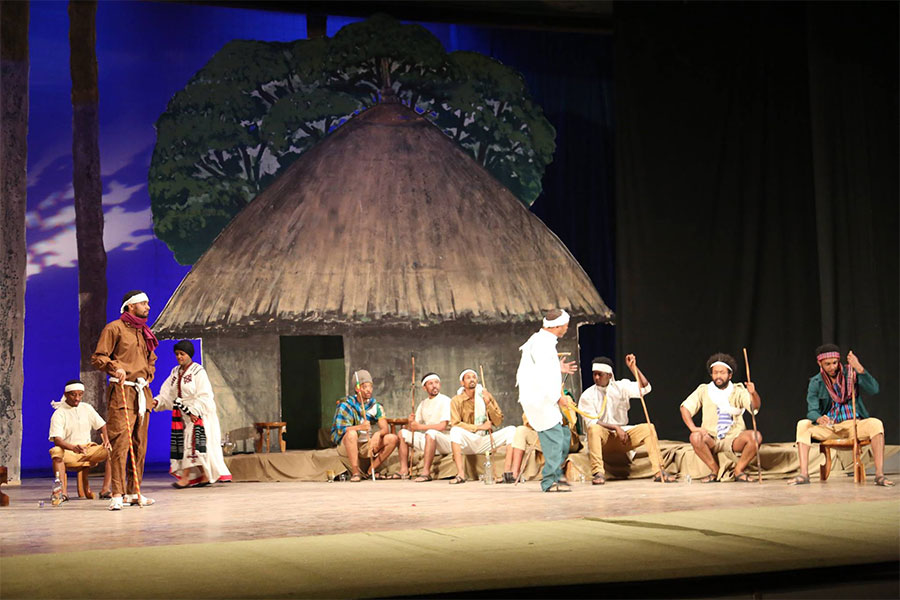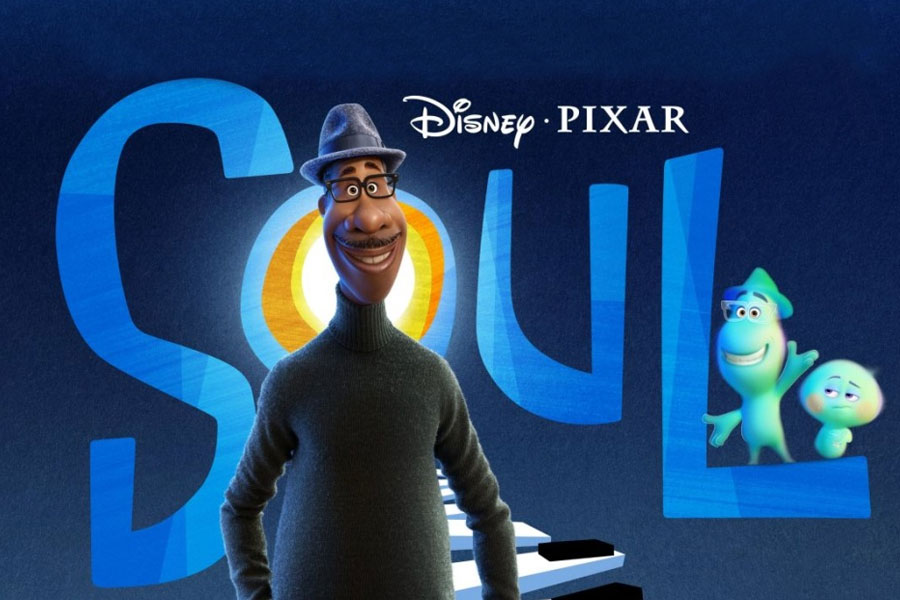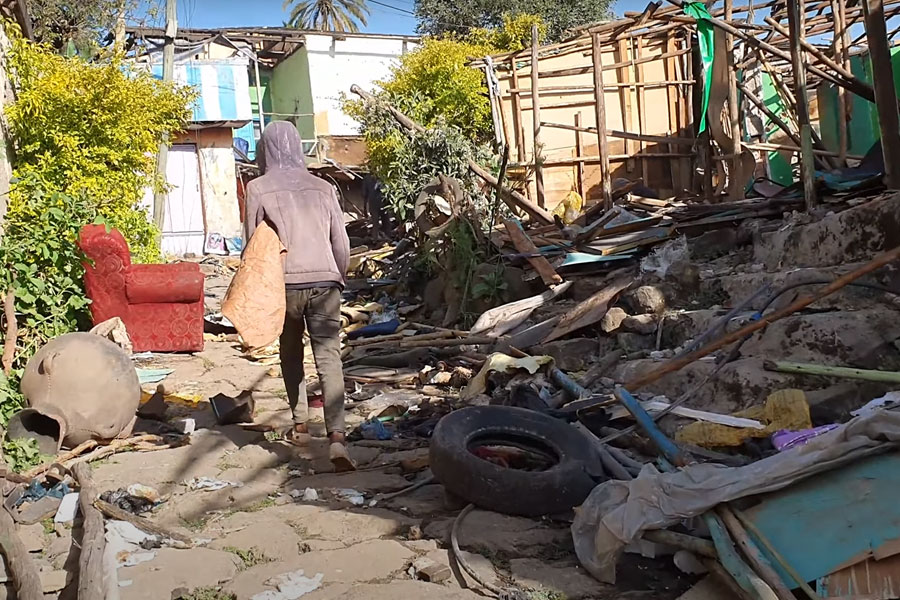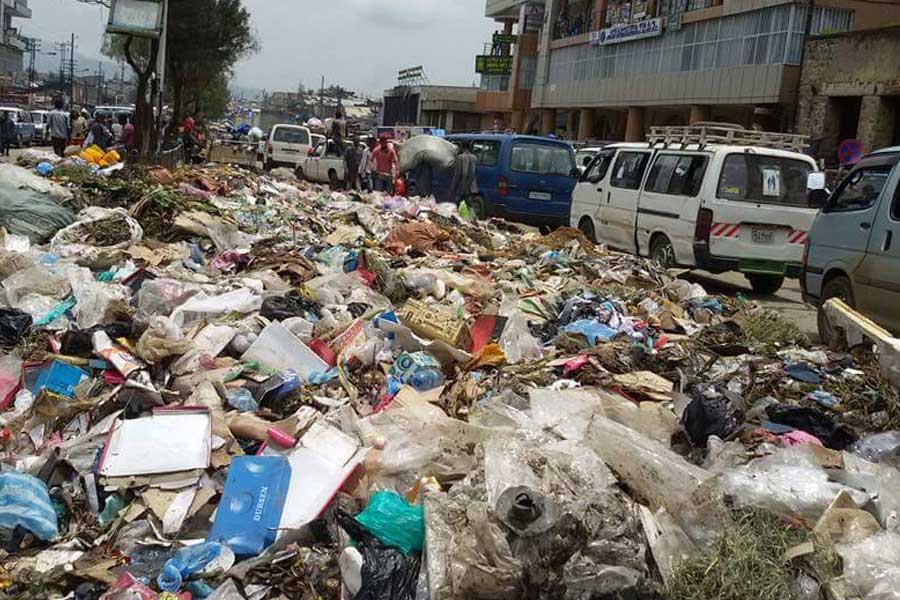
View From Arada | Sep 03,2022
Last Monday, I had to rush to the historic Hager Fikir Theatre. It was almost as immediately as I noticed the notice on Facebook with a catching title that I left my home as I had only a few hours left before the start of the programme. A debate was to be held for the fifth time, and I thought it was worth skipping other commitments to attend.
En route to the theatre, I was engulfed with a range of thoughts on how the debate on whether art and artists' freedom of expression is exercised in present-day Ethiopia would unfold. With questions such as whether a given theatre needs an evaluation to prove its stage fitness and whether such exercises are tantamount to censorship or not, given most theatre halls are owned by the government.
First in the line of thoughts came the 1921 play, Fabula: Yawreoch Commedia, translated to "Fable: The Comedy of Animals," written by Tekle Hawariat, a tongue-in-cheek play that critically assessed the apparent maladministration of Empress Zewditu and her imperial court. It was argued that it signalled theatre’s bad start in Ethiopia as it was instantly barred after a single performance.
Next, I started to be amused by the warmth of attending a debate at the historic Hager Fikir Theatre, a venue that used to huddle educated youth with a cultural and political influence in the country, as they engaged in the most strenuous debate during the Imperial era. Sure I was also worried about how the prepping was going to turn out for the day, to make the evening far from violent arguments and one filled with positive energy, respect and a deep understanding of the subject matter at hand.
Or would the programme end up being a stage for preaching to the choir, telling the participants nothing we had not considered ourselves long before?
Simon Reynolds, music journalist, said we live in a pop culture obsessed with its past – and that is why there has not been any genuinely new music for years. It is a matter of preaching to the choir, playing to people’s comfort zones. From the 1950s to the 1990s, we always had something fresh to listen to because new styles kept emerging, but the past decade has not followed suit. The crisis in imagination is also true for theatre art, and I wondered if its practitioners were looking for an alibi for not being so innovative enough, prompting a blaming game.
It was as soon as I arrived at the venue that the debate started after opening with a traditional coffee ceremony. Moderated by a super courteous academician, the atmosphere was spirited. As has always been the case, the debate is headed to a dead end, as the issues are still debatable, and hopefully, these informed debates continue. It is hoped what frees someone to exercise their freedom of expression in search of truth does not end up being a gloom to others.
Hopefully, these cohorts of theatre artists, who attended the debate, will continue to be curious and contribute to the theatre industry. Dialogue and sitting for debates is the only solution for the multi-faceted problems, as they did long before we were born. It is further hoped that the exercise leads to furthering the rules of the games from the prevailing circumstances of the country, whose competence and commitment matter to stage a play.
Theatre, and the arts, are the platforms and the means of expression we use to analyse, come to terms with or find closure on a slew of real-life issues that affect our day-to-day lives. It is about time we made use of spaces such as Hager Fikir.
PUBLISHED ON
Jun 18,2022 [ VOL
23 , NO
1155]


View From Arada | Sep 03,2022

Radar | Jul 29,2023

Films Review | Jan 03,2021

Agenda | Mar 23,2024

Sunday with Eden | Jun 08,2019

My Opinion | May 31,2025

Radar | Oct 19,2019

View From Arada | Apr 30,2021

Sunday with Eden | Feb 20,2021

Sunday with Eden | Dec 14,2019

Dec 22 , 2024 . By TIZITA SHEWAFERAW
Charged with transforming colossal state-owned enterprises into modern and competitiv...

Aug 18 , 2024 . By AKSAH ITALO
Although predictable Yonas Zerihun's job in the ride-hailing service is not immune to...

Jul 28 , 2024 . By TIZITA SHEWAFERAW
Unhabitual, perhaps too many, Samuel Gebreyohannes, 38, used to occasionally enjoy a couple of beers at breakfast. However, he recently swit...

Jul 13 , 2024 . By AKSAH ITALO
Investors who rely on tractors, trucks, and field vehicles for commuting, transporting commodities, and f...

Jul 5 , 2025
Six years ago, Ethiopia was the darling of international liberal commentators. A year...

Jun 28 , 2025
Meseret Damtie, the assertive auditor general, has never been shy about naming names...

Jun 21 , 2025
A well-worn adage says, “Budget is not destiny, but it is direction.” Examining t...

Jun 14 , 2025
Yet again, the Horn of Africa is bracing for trouble. A region already frayed by wars...